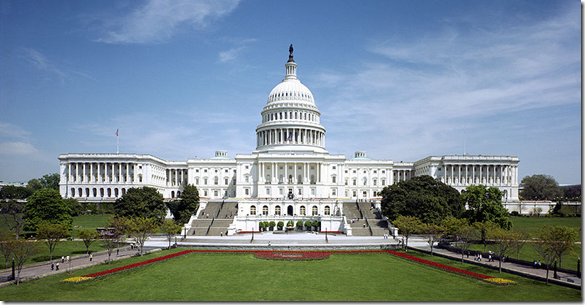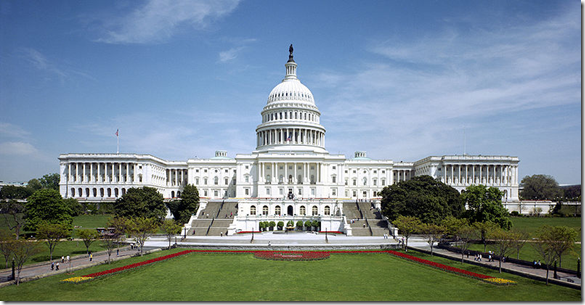Archive
Tom and Jerry Politics
Ezra Klein, in a very good post, looks longingly at what political scientists believe about elections; results have nothing to do with the quality of individual campaigns or specific policy proposals and all to do with “how things are going (for which the incumbent party is on the hook)”. This may perplex those who follow or have imbibed American-style electioneering- atomised candidates spending big on star pollsters, ad men and Mafiosi political operatives to find out how best to make people vote for them- but in the UK at least, it is pretty obvious. A government remains in power until voters lose confidence in it’s ability to handle issues they care about i.e. the economy, National Health Service and crime* Which is why we have long-living governments which then fall once things eventually go bad or they “run out of ideas”. This view suggests (correctly in my opinion) that the Labour Party and Republicans had no chance of winning their last elections, they, as Obama has said in a similar context, had driven the car off the cliff and were now asking for the keys back. It also provides a reason for Obama’s declining popularity, the Democrat’s coming electoral losses and those of the UK coalition if their reforms do not adhere to the utility principle by the next election (scheduled for 5 years from now without political opportunism).
One paragraph reminded me of a thought I had some time ago; whatever members of a political party believe becomes consistent with their ideology or less benignly, any policies the party elite espouse become consistent with that ideology even though they are diametrically opposed. Example: conservative arguments against the rights of consenting same-sex couples to marry. The opposite holds for opponents.
Third is that voters don’t approach elections with strong views on policy issues. Instead, they look to the political leaders they already trust to tell them what their views should be. If President Romney had proposed ObamaCare before a mostly Republican Congress, it would’ve gotten an easy majority of Republicans — both in Congress and in the country — and almost zero Democrats. Party affiliation drives policy opinions, and not the other way around.
The quote references Mitt Romney, the Republican former governor of Massachusetts, and the recently passed US Affordable Care Act which contained an individual mandate**- everyone must, on the pain of monetary penalties, buy health insurance- as did Mitt Romney’s changes to the Massachusetts health care system. Once the Republican party decided it neither liked nor wanted ObamaCare, he then had to split the difference between Obama’s liberty-restricting governmental coercion and his “ultimate Conservative plan… [in which] people have to take responsibility for getting insurance if they can afford it or paying their own way [and not the status quo of emergency room free-riders]”. See some of his greatest hits:
You can read more and see highlights of his interview with Larry King here.
Also see conservative think tank, The Heritage Foundation’s furious refutation(s) of the suggestion that many of the ideas in ObamaCare were taken from them (link within that link <Inception FTW> here). [I also read somewhere that many of the ideas Democrats championed in ObamaCare were actually put forward by Republicans during the Clinton administration’s push for HillaryCare, but they were rejected].
This is not exclusive to the US. Take for instance last week’s flap over the appointment of Labour’s Alan Milburn as an advisor to the Conservative-LibDem coalition government. This led to cries from both sides: “Collaborator!” from Labourites and “Why couldn’t Conservatives be appointed to these jobs?” from Tories. Or the coalition’s Big Society Initiative which is similar to mutualism espoused by Labourites and Labour-friendly groups and thinkers but has been the object of scorn from Labour [I admit I did join in but it probably wasn’t funny, so no harm done].
I’ve always thought and still believe that this is one reason why the American political system is so dysfunctional and prone to non-debate “debates” in which everyone talks past each other, Godwin’s law is catalysed and the law-breaker becomes the winner of the argument! It’s impossible to come to a negotiated agreement (the aim of politics and policy making) if one side hops off in another direction once the other comes towards them. That is playing Tom and Jerry with people’s lives, and that is irresponsible and frankly, immoral.
*I do not include intra-party coups as those lead to changes of the head of government (Prime Minister) and not the government; the parliamentary majority.
**I use this portion of what is a highly contentious bill because it illustrates my point perfectly.
Tom and Jerry Politics
Ezra Klein, in a very good post, looks longingly at what political scientists believe about elections; results have nothing to do with the quality of individual campaigns or specific policy proposals and all to do with “how things are going (for which the incumbent party is on the hook)”. This may perplex those who follow or have imbibed American-style electioneering- atomised candidates spending big on star pollsters, ad men and Mafiosi political operatives to find out how best to make people vote for them- but in the UK at least, it is pretty obvious. A government remains in power until voters lose confidence in it’s ability to handle issues they care about i.e. the economy, National Health Service and crime* Which is why we have long-living governments which then fall once things eventually go bad or they “run out of ideas”. This view suggests (correctly in my opinion) that the Labour Party and Republicans had no chance of winning their last elections, they, as Obama has said in a similar context, had driven the car off the cliff and were now asking for the keys back. It also provides a reason for Obama’s declining popularity, the Democrat’s coming electoral losses and those of the UK coalition if their reforms do not adhere to the utility principle by the next election (scheduled for 5 years from now without political opportunism).
One paragraph reminded me of a thought I had some time ago; whatever members of a political party believe becomes consistent with their ideology or less benignly, any policies the party elite espouse become consistent with that ideology even though they are diametrically opposed. Example: conservative arguments against the rights of consenting same-sex couples to marry. The opposite holds for opponents.
Third is that voters don’t approach elections with strong views on policy issues. Instead, they look to the political leaders they already trust to tell them what their views should be. If President Romney had proposed ObamaCare before a mostly Republican Congress, it would’ve gotten an easy majority of Republicans — both in Congress and in the country — and almost zero Democrats. Party affiliation drives policy opinions, and not the other way around.
The quote references Mitt Romney, the Republican former governor of Massachusetts, and the recently passed US Affordable Care Act which contained an individual mandate**- everyone must, on the pain of monetary penalties, buy health insurance- as did Mitt Romney’s changes to the Massachusetts health care system. Once the Republican party decided it neither liked nor wanted ObamaCare, he then had to split the difference between Obama’s liberty-restricting governmental coercion and his “ultimate Conservative plan… [in which] people have to take responsibility for getting insurance if they can afford it or paying their own way [and not the status quo of emergency room free-riders]”. See some of his greatest hits:
You can read more and see highlights of his interview with Larry King here.
Also see conservative think tank, The Heritage Foundation’s furious refutation(s) of the suggestion that many of the ideas in ObamaCare were taken from them (link within that link <Inception FTW> here). [I also read somewhere that many of the ideas Democrats championed in ObamaCare were actually put forward by Republicans during the Clinton administration’s push for HillaryCare, but they were rejected].
This is not exclusive to the US. Take for instance last week’s flap over the appointment of Labour’s Alan Milburn as an advisor to the Conservative-LibDem coalition government. This led to cries from both sides: “Collaborator!” from Labourites and “Why couldn’t Conservatives be appointed to these jobs?” from Tories. Or the coalition’s Big Society Initiative which is similar to mutualism espoused by Labourites and Labour-friendly groups and thinkers but has been the object of scorn from Labour [I admit I did join in but it probably wasn’t funny, so no harm done].
I’ve always thought and still believe that this is one reason why the American political system is so dysfunctional and prone to non-debate “debates” in which everyone talks past each other, Godwin’s law is catalysed and the law-breaker becomes the winner of the argument! It’s impossible to come to a negotiated agreement (the aim of politics and policy making) if one side hops off in another direction once the other comes towards them. That is playing Tom and Jerry with people’s lives, and that is irresponsible and frankly, immoral.
*I do not include intra-party coups as those lead to changes of the head of government (Prime Minister) and not the government; the parliamentary majority.
**I use this portion of what is a highly contentious bill because it illustrates my point perfectly.
Update: Found this post:
If you were asked to judge a policy proposal for addressing a social issue, which would be more important to you, the content of the proposal or the party that wrote it? Most of us would answer that the specific policies would be much more important than the political party that proposed it. Most of us would be dead wrong.
Political marketers know that they have to target swing voters (undecideds, independents, etc.) with their ads and other efforts because trying to change the mind of committed party members is next to impossible. In The Neuroscience of Political Marketing, I described research by Drew Westen at Emory that showed political messages were processed primarily in an emotional, not rational, way.A study by social psychologist Geoffrey Cohen at Yale shows that cognitive dissonance plays a big role in the way people evaluate political issues, and that they will adjust their beliefs (and maybe facts) as needed to resolve that dissonance.
Cohen’s experiment was simple. He organized two groups of subjects, one composed of liberal Democrats, the other of conservative Republicans. Then, he showed them very different proposals on the topic of welfare. One policy proposal was very liberal, and involved large expenditures of tax money. The other was harshly conservative, and proposed far lower levels of assistance and expense. As you might expect, the liberal subjects preferred the free-spending plan while the conservatives liked the restrictive plan.
Here’s the bizarre twist: when the subjects were told that the plan they didn’t like had been proposed by their own party, their attitudes changed and they favored the plan they had initially opposed. Liberals thought that cracking down on welfare was a good idea, while conservatives found they could justify opening the coffers for this important social purpose. They even wrote essays explaining why the policy they now favored was appropriate.
And, as Neuromarketing readers could anticipate, the subjects were unaware of this influence. They did think that other people were influenced by party beliefs, but considered their own decision-making to be rational and not tainted by politics.
This is another example of why getting votes from opposing party members is so difficult. One’s political affiliation can trump everything, including logic and common sense.

